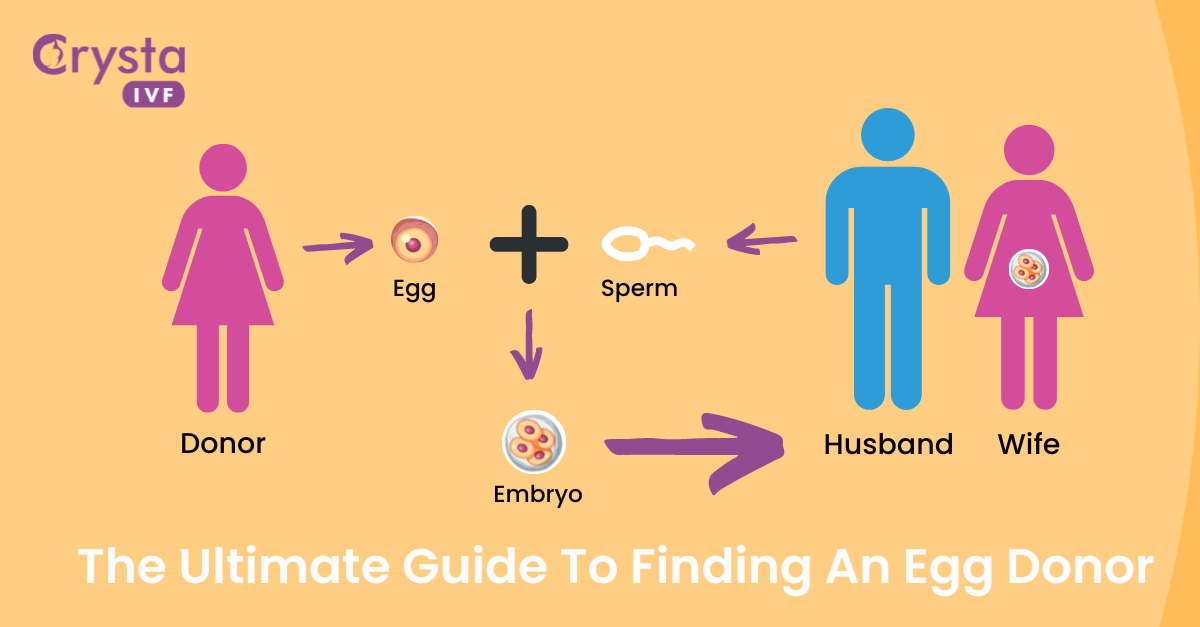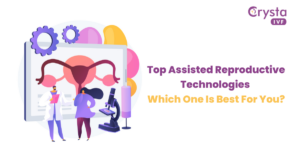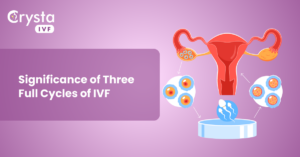When you plan to start a family but cannot conceive on your own, assisted reproductive technology like In Vitro Fertilization IVF Treatment along with donor egg or sperm can be a good choice.
Many couples struggling with infertility and can’t use their own egg for fertility treatments are recommended donor programs, where a donor (healthy individual) provides you with the egg & sperm that’ll be used in fertilization, such as IVF, to achieve pregnancy.
In Vitro Fertilization (IVF) is a process by which an egg is fertilized by sperm outside the body in a laboratory. IVF is a major treatment for infertility when other methods of assisted reproductive technology have failed.
If you’re considering using an egg donor in IVF treatment, you may wonder how to choose the right one. There are many factors to consider, from physical characteristics to health history to personal preferences.
The Essential Guide to Choosing an Egg Donor can help you navigate the process and make the best decision for your family.
When to Consider Donor Egg in IVF Treatment?
While in your IVF treatment, if it is found that the number and quality of a female’s egg aren’t good enough for fertilization, then a donor egg might be recommended by your fertility doctor. Using a donor egg might increase the chances of successful IVF implantation.
Donor eggs have helped many infertile couples in achieving pregnancy. You’re a suitable candidate for IVF with the donor in the following cases:
- Poor quality egg
- Age-related infertility
- Previous history of IVF failures
- Past surgeries that may have damaged the ovaries
- Early menopause
- Diminishing ovarian reserve
- Risk of transferring genetic disease
- Post-cancer treatment
- Premature ovarian failure
The success rate of IVF significantly improves with the donor egg as it overcomes certain risk factors associated with the intended mother’s eggs.
7 Essential tips on how to choose an Egg Donor in IVF treatment
Choosing an egg donor for IVF can be daunting, but it is essential in your IVF treatment.
There are many things to consider when making this decision, and it’s not something you should take lightly. Thankfully, some essential tips can help you choose the best egg donor for your situation.
1. Have a talk with your doctor or fertility specialist
The first tip is to consult with your doctor or fertility specialist. They will have the most experience and knowledge about choosing an egg donor, and they’ll be able to give you specific advice based on your individual needs.
2. Consider what qualities are important to you in an egg donor
When shortlisting an egg donor for IVF treatment, it is essential to consider qualities. Do you want someone who shares physical characteristics with you or your partner? Or prefer a specific personality type? You may also want to consider the medical history of potential donors.
Choosing an egg donor will be much simpler and less stressful by taking the time to figure out what is important to you.
3. Do you research Donation Programs
Learn as much as possible about different egg donation programs and what they offer. This will help you narrow down your options and find the best fit for you and your family.
4. Previous egg donation
Couples who seek donor eggs often prefer to choose a donor who has been through the process before as they are experienced and know what to expect. Such donors also respond effectively to fertility medications used in IVF treatment.
Though a legal limit on how often she may donate has not been established, many fertility centers or agencies recommend donating only a few times. A short-term study on the effects of repeatedly stimulating the ovaries to produce eggs for donation is reportedly underway.
5. Known or unknown donors
Whether you’d like to use an identified or anonymous egg donor for your IVF procedure is also essential. Fertility centers can assist you in envisioning the type of relationship you’d like your egg donor to have with your child and you.
A confidential and well-defined connection between an anonymous or unknown egg donor and a family may be created if the donor’s identity is not revealed.
6. Compiled a list of potential donors
When you are looking for an Egg Donor for IVF treatment, it is essential that you take the time to look into their backgrounds and health records as much as possible. This will give you a better idea of who they are and whether or not they would be a good fit for you.
Additionally, this will help you narrow down your list of potential donors to make the best decision possible.
7. Location of a donor
It is crucial to consider the location of the donor when choosing an egg donor, but bear in mind that your IVF clinic manager may be able to assist you in locating an egg donor who is closer to your clinic as desired.
When using a nonlocal donor, the hospital will handle all travel arrangements so that the patient doesn’t have to. We believe finding the best egg donor available at the lowest cost is critical.
Get a Complete & Right Guidance From a Fertility Expert
Even though it might seem like a hard pill to swallow when your fertility doctor asks you to consider using an egg donor in your IVF procedure, it doesn’t have to be a defeat. To be healthy and have a successful pregnancy, it’s always good to consider things in your favor.
Therefore, it’s critical to seek fertility assistance if you don’t know how to use a donor egg or how it can be used.
Fertility experts at Crysta IVF, the best IVF clinic in Lucknow, have decades of experience and have effectively handled many cases that involve donation programs. They can guide you in the right direction so that your parenthood journey is smoother.




